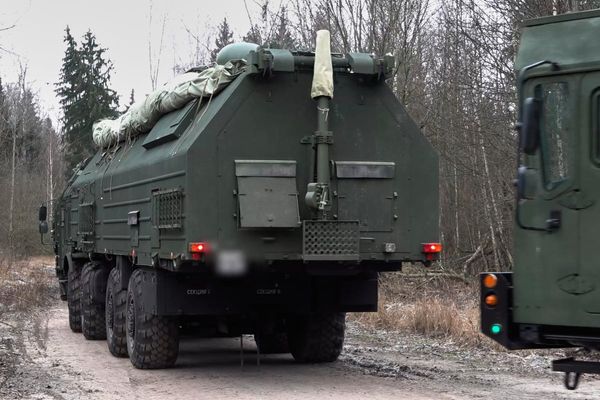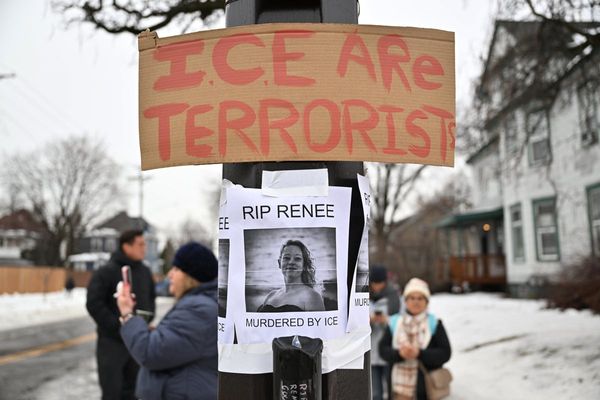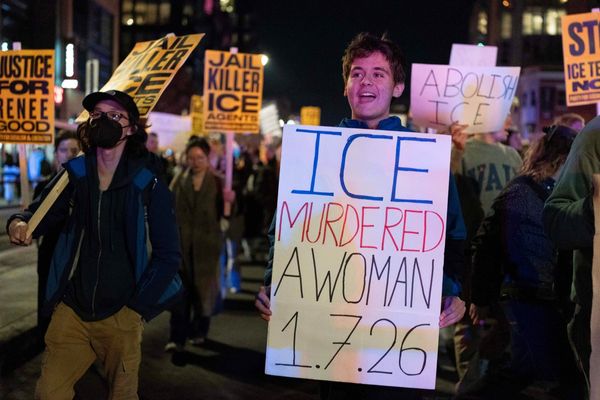Branding the migrant crisis a “bottomless pit” threatening to swallow taxpayers, Ald. Anthony Beale (9th) wants to give voters their first opportunity ever to determine whether Chicago remains a sanctuary city.
Beale plans to introduce a resolution asking his City Council colleagues to put a binding referendum on the March ballot, asking this question: “Should the city of Chicago continue to keep its designation as a Sanctuary City?”
If the answer is, “Yes,” the caravans that have brought over 15,000 migrants to Chicago — including 18 busloads last week, 12 more over the weekend and eight more busloads and two more flights on Tuesday — will continue.
Mayor Brandon Johnson would proceed with plans for the giant tent cities he prefers to call “winterized base camps” to move more than 2,000 asylum-seekers off the floors of Chicago police stations and O’Hare and Midway airports before temperatures plummet.
But to get the question on the ballot, Beale first needs 26 alderpersons to vote for it. That won’t be easy in a Council controlled by allies of the most progressive mayor in Chicago history.
Beale knows it’s an uphill battle, but is determined to stop the bleeding.
“You have people who have been living here their entire lives being denied basic services and goods. Yet we can find this kind of money to basically take it out back, put it in a barrel and burn it up. ... The amount of money we’re spending is absurd,” Beale said.
“If you were to give my ward $40 million or $50 million a year, I could transform my ward. … It would be a different community in a matter of a couple of years. If we can find money for this, why can’t we find money for people who are here paying into the system?”

It’s been 38 years since Mayor Harold Washington issued an executive order declaring Chicago a “sanctuary city,” allowing undocumented people to access city services and live without fear of police harassment or city cooperation with federal immigration authorities. The policy led to what is known as the “welcoming city” ordinance.
Never once have Chicago voters been asked for their permission, Beale said.
“If the people say ‘Yes,’ so be it. Let’s proceed raising everybody’s taxes. Let’s proceed spending hundreds of millions of dollars a year. But if we’re going to stop the bleeding, we need to do something different because it’s only going to get worse. Today, it’s $500 million. Tomorrow, it’s $1 billion. Who’s paying for that? The same people who are being denied services.”
Cristina Pacione-Zayas, Johnson’s deputy chief of staff, dismissed Beale’s resolution as political theater — and not an “overnight solution” to the migrant crisis.
“He’s got to get it through the City Council. Get enough signatures to get it on the ballot. Then go through the process with the voters. And then, there’ll be a host of other ... ordinances and state implications that will invalidate it,” she said.
“Since we are a sanctuary state and ... have several pieces of legislation that protect that, he’s basically inviting some type of fight with the state. ... And right now the state, in many ways, is helping us with this situation.”

In a Chicago Sun-Times/WBEZ/Telemundo Chicago/NBC5 Poll conducted in February, about 61% of Chicago voters thought City Hall should provide more help to recent arrivals, as opposed to 33% who thought officials should not provide more assistance.
About 81% of Latino voters thought the city should provide more assistance, compared to 59% of Black voters and about 50% of white voters.
Ald. Mike Rodriguez (22nd) is confident his Council colleagues are “wise enough to know this is a right-wing political stunt.”
“Since the mid-’80s, when Mayor Harold Washington ushered in our great city as a welcoming city to migrants, we’ve remained that, and we will continue to remain that, despite the anti-immigrant rhetoric, the pro-Trump rhetoric that’s out there,” Rodriguez said.
“If we want our economy to stay strong, we will do everything possible to remain a nation of immigrants and a city of immigrants,” he said.
Rodriguez is equally confident Chicago voters would refuse to send an isolationist message to the world about their melting pot of a city.
“The people of Chicago believe that we should be a welcoming city. I’ve seen so many Chicagoans stepping up to help our migrant brothers and sisters now and in the past and they will continue to do that,” Rodriguez said.
He pointed to countries like Italy and Japan, with aging populations, declining birth rates and workforces that are “not keeping up.”
“They’re having massive economic challenges because of that. I don’t want our [country and city] to be in that space as well. We need migrant labor. We need to figure out how to integrate people more — not shut people out,” he said.
Ubaldo Aguilar, executive director of immigrant rights organization Centro de Trabajadores Unidos, championed reforms passed in 2021 that eliminated exceptions to the welcoming city ordinance. Those exceptions had allowed police to cooperate with immigration authorities in certain situations.
Eliminating the exceptions gave immigrants confidence to get jobs, and work with police to solve crimes, he said.
Changing that now, he said, would create two classes of arrivals: Venezuelans who arrived in time to qualify for Temporary Protected Status, which guards against deportation — and everyone else.
Those immigrants, he said, would be forced back underground, unable to fully participate in the economy and reluctant to report crimes.
At Wednesday’s Council meeting, Beale said he also plans to introduce a companion ordinance requiring at least 30 days’ notice to a local alderperson, as well as that Council member’s written approval, before a “residential shelter or housing facility for more than 12 individuals” can be located in their ward. The only exceptions would be locations authorized by the full Council.
Contributing: Michael Loria, a staff reporter for the Chicago Sun-Times via Report for America, a not-for-profit journalism program that aims to bolster the paper’s coverage of communities on the South Side and West Side.







